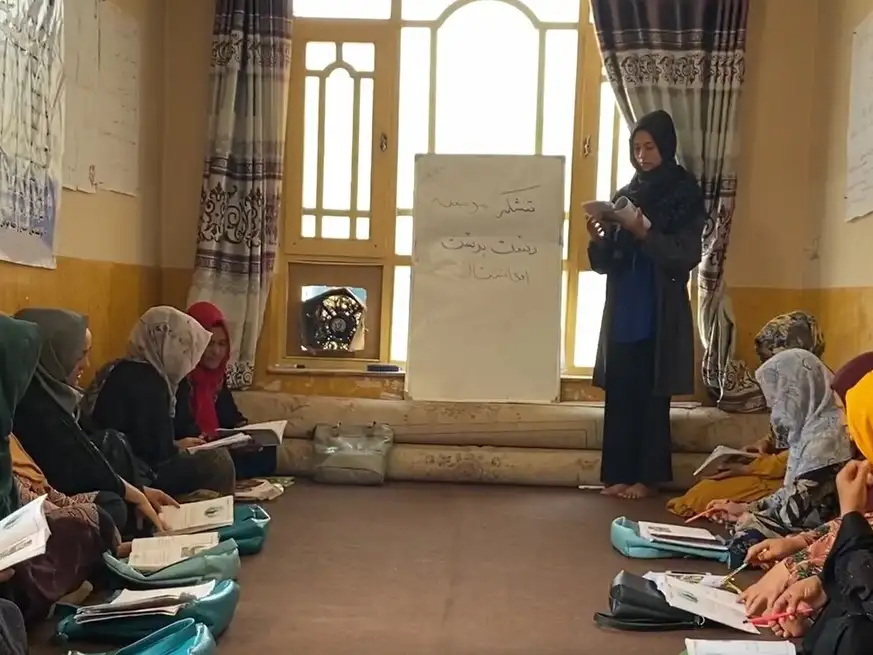Your support will help us reach vulnerable people caught up in this crisis.
Your generous contributions to the Afghanistan Crisis Appeal have helped thousands of women and men – your sisters and brothers – to access essentials such as food, water and shelter, as well as learn new vital life skills like reading and writing.
Although our work in Afghanistan is difficult, your support means local aid experts are finding ways to reach out to the people most in need, so even more people can stay safe.
We will not give up on the people of Afghanistan, even though the situation in the country is still unstable following the Taliban’s takeover and the devastating earthquake in Paktika province.
We have been working in Afghanistan since the late 1980s. With your support and continued kindness, we will keep on reaching out with love to help the women and men who are most in need.
Long-term support for women and girls
One of the great challenges in Afghanistan at present is the status and life chances of women and young girls.
Outside of the emergency work you’ve helped to fund over the last two years, and as part of our long-term work in the country, dedicated teams of volunteers and professionals have been working with women in the northern Balkh province: you’ve helped purchase tailoring, weaving and embroidery kits so women and girls can keep up their practice – these kits are a powerful way for some of the most vulnerable members of society to make a living and maintain independence.
“I previously believed that people couldn’t learn something new in adulthood,” says Farkondeh, who started tailoring at 43. “However, the last two years of my life have proved that this is not true. I started learning tailoring with a group of women of all different ages. I had to train, start my business and earn money all at the same time, because we are a family of nine and I am the only worker and had no regular income.”
Farkondeh accessed a tailoring toolkit through CAFOD’s local partner: “After six months hard working, I learnt tailoring and was also given a tailoring start-up kit containing fabric and yarn.”
Join us in prayer for the people of Afghanistan.
The power of reading
The ability to read and write is a fundamental skill. We read and write for pleasure, to learn about and engage with new ideas, to find out what’s happening around us. Reading and writing opens up doors of opportunity. If we cannot read and write, how can we dial phone numbers or interpret street signs? How can we express ourselves or speak out against injustice?
Your donations to Afghanistan have helped fund literacy classes for women and girls. Now, some of the most vulnerable people in society are working hard to gain vital life skills, ensuring they have a voice as well as more reliable incomes in the future.
Fatima (pseudonym) is one of the women who is learning to read and write in classes funded by people like you, led by local experts. She told us:
“I am one of the trainees of the life-skills class. I joined the programme eight months ago and thanks to God I have learnt to read and write. Initially, I felt I was blind. I am now able to read signs and I can dial phone numbers.”


Women and girls in northern and western Afghanistan are learning to read and write so they can have more reliable incomes in the future
The situation is still desperate. So many people still struggle to get the food and fuel they need to survive or forge a living for themselves. Your generosity has helped so many but there is much more we can do. I have been so impressed by how our experts working on the ground are reaching those in most need – particularly women and girls.
Distribution of food baskets and cash to vulnerable families
CAFOD also continues to work through local partner teams to reach vulnerable households in Balkh province – distributing either food baskets or cash to buy food at local markets.
Thanks to your donations, we’ve been able to assist thousands of families, prioritising people living with disabilities or families headed by women, with emergency food. Each food basket contains essential products like wheat, rice, vegetable oil, salt and sugar – enough supplies for around two months!



